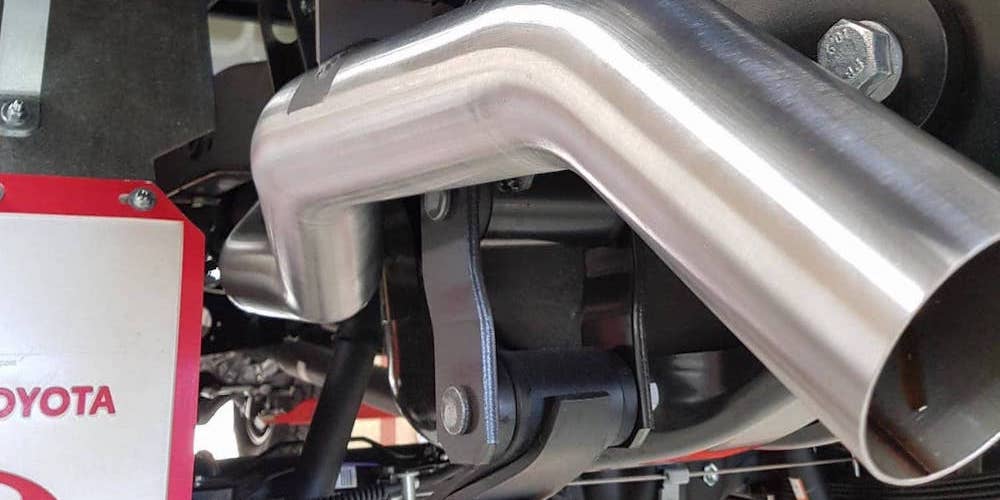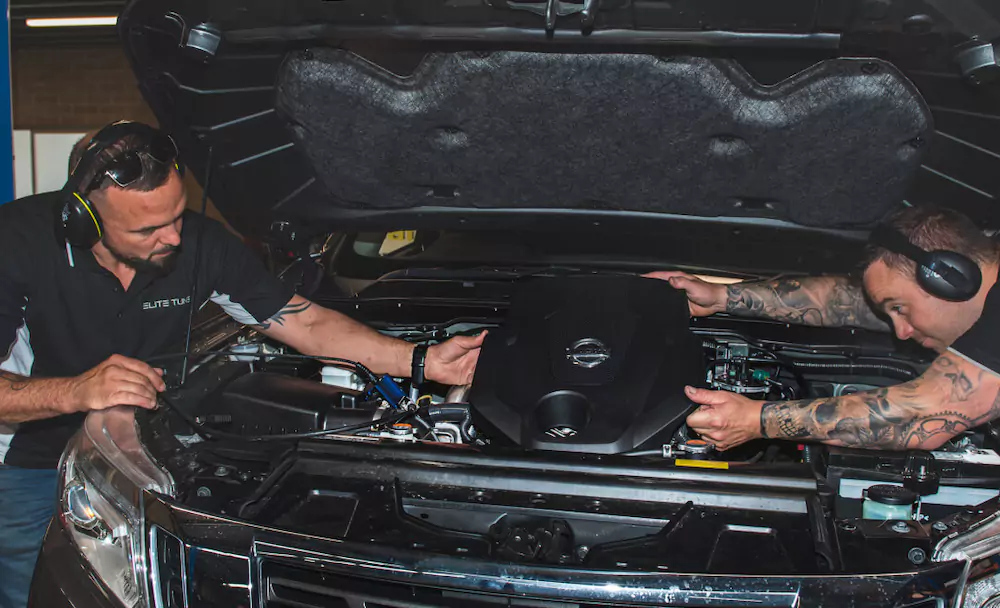Are you wondering how to tune a diesel car and if it’s worth it for your engine? I’m a big fan of diesel tuning but only when done properly and in accordance with local regulations.
If you want to maximise your engine’s durability, power, fuel efficiency, and torque, read on to learn if diesel tuning may be a good option for you.
In my guide on how to tune a diesel car, I’ll cover the types of diesel tuning, pros and cons of diesel tuning, and frequently asked questions.
Quick Summary
- Diesel tuning is an effective way to get more performance out of your vehicle’s engine
- Common types of diesel tuning include ECU remapping, exhaust upgrades, and dyno tuning
- Proper diesel tuning can result in higher torque, more power, higher fuel efficiency, a smoother ride, increased responsiveness, enhanced engine lifespan, and optimised performance
- It is important to check your vehicle warranty and local registrations before a diesel tuning
- The boost in power achieved by tuning can place increased stress on the engine
- Diesel tuning is best left to a professional who can counter additional stress on engine components to keep your vehicle running smoothly and reliably
Main Types of Diesel Tuning
There are so many guides on how to tune a diesel car, but here’s a simplified look at common diesel tuning options.
ECU Remapping
A popular method is ECU remapping. This process involves updating various parameters in the engine control unit (ECU). By tweaking these parameters, we can modify functions that directly affect performance.
This is my favourite option for enhancing engine performance without breaking the bank. ECU remapping can adjust turbo boost pressure, fuel injection timing, and other factors that achieve noticeable performance gains.
You May Also Like: Chip Tuning vs ECU Remapping
Dyno Tuning
Dyno tuning is another popular, effective option for optimising engine performance.
Dyno tuning involves the use of a dynamometer to evaluate engine parameters and adjust them to achieve optimal output, boost power, and promote a smoother ride.
You can read more about the benefits of dyno tuning in my blog.
Performance Parts Installation
Adding or upgrading performance parts is another effective method. This includes:
- High-flow Air Filters: These allow the engine to breathe better, enhancing combustion efficiency. I recall a time when replacing a standard air filter with a high-performance one noticeably improved the throttle response of a family SUV.
- Exhaust System Upgrades: A larger or more free-flowing exhaust system reduces backpressure, allowing exhaust gases to exit the engine more easily. This not only boosts power but also creates a more satisfying sound. I once worked on a sports diesel coupe where an exhaust system upgrade alone made a discernible difference in acceleration and sound, much to the owner’s delight.
- Turbocharger Enhancements: Upgrading the turbocharger or adjusting its settings can dramatically increase an engine’s output. A memorable project involved retrofitting a larger turbo on a diesel sedan, significantly reducing turbo lag and increasing peak power.
Fuel System Upgrades
The fuel system plays a pivotal role in a diesel engine’s performance. Modifications here can include:
- High-pressure Fuel Pumps: Increasing the fuel pump’s pressure can improve the atomization of fuel, leading to better combustion and, consequently, more power. This was evident in a towing vehicle I tuned, where a fuel pump upgrade markedly improved its uphill performance.
- Injectors: Upgrading to performance-oriented injectors can deliver fuel more efficiently and in the correct quantities, enhancing performance and fuel economy. In one of my projects, new injectors combined with ECU remapping yielded an impressive gain in power and a smoother ride.
Advanced Techniques
For those seeking the pinnacle of diesel tuning, advanced techniques such as water-methanol injection or nitrous oxide systems can provide temporary but significant boosts in power for racing or heavy towing. These methods are more complex and require a thorough understanding of the engine’s limits to avoid damage.
Considerations When Tuning a Diesel Car
I’m a big fan of diesel tuning, but I always like to let customers know there are certain limitations and considerations to keep in mind.
- Heat Management: Increasing horsepower without considering the additional heat generated can negatively impact engine performance. Excess heat can hinder the intake system’s ability to function properly, leading to reduced power output and potential engine struggles.
- Complexity: Diesel tuning requires a deep understanding of engine mechanics and how modifications will interact with each other. Without sufficient knowledge and experience, DIY tuning projects can result in costly damage to the vehicle.
- Risk of Damage: Improper diesel tuning can lead to significant vehicle damage and safety hazards. Mistakes in the tuning process can result in engine damage, requiring expensive repairs by professionals.
- Regulatory Compliance: It’s essential to ensure that any modifications comply with local regulations. Non-compliant modifications can result in legal issues and potentially void the vehicle’s warranty and insurance coverage.
- Professional Consultation: Consulting with a professional tuner who specialises in diesel engines is crucial for tailored advice and optimal results. Experienced tuners can provide insights specific to your vehicle model and help avoid potential pitfalls in the tuning process.
Pros and Cons of Diesel Tuning
Diesel tuning can take your vehicle from functional to high-performance with a few tweaks. The increased performance, fuel efficiency, and power can result in a vehicle that is more responsive and smoother and more enjoyable to drive.
| Benefit | Description |
|---|---|
| 1. Smoother Overall Driving Experience | Diesel tuning can take your vehicle from functional to high-performance with a few tweaks. The increased performance, fuel efficiency, and power can result in a vehicle that is more responsive and smoother and more enjoyable to drive. |
| 2. Increased Power | Increasing the vehicle’s power is one of the most popular reasons for tuning a diesel engine. A quality diesel tune can provide a noticeable increase in horsepower, smoother gear changes, faster acceleration, and improved overall performance. |
| 3. Increased Torque | Another big reason owners opt to upgrade their engine is higher torque. If you do a lot of hauling or towing, you know that higher levels of torque are key for a smooth, effortless hauling experience. |
| 4. Improved Engine Longevity | By optimising an engine’s performance, it can reduce unnecessary wear and tear and increase efficiency. This can help improve engine longevity by reducing stress on the engine’s components, such as the fuel injection system, gearbox, transmission, or turbocharger. By optimising engine performance and longevity, it can also save you money on maintenance costs and repairs in the long run. |
| 5. Customised Performance | Diesel tuning can be tailored to your exact driving needs and performance goals. Whether you want increased towing capabilities, a smoother ride, better fuel efficiency, or improved low-speed performance, diesel tuning can be customised to driving style and preferences. When I work with a client, I enjoy discussing their driving needs and goals for their vehicles prior to diesel tuning. Then I can customise the ECU remapping or dyno tune to achieve their power and performance goals. |
| 6. Improved Fuel Efficiency | More power. More torque. Better performance. You’d think these benefits of diesel tuning would come at the cost of decreased fuel efficiency. But customers are always surprised when I tell them it’s actually the opposite. Done properly, diesel tuning can increase efficiency during the combustion process, increasing the mileage your vehicle can get out of a tank of gas. This improved fuel efficiency can lead to savings on fuel costs over time and reduced carbon emissions — a win-win! |
| 7. Cost-Effective Performance Upgrade | Diesel tuning is one of the most cost-effective ways to increase your vehicle’s performance. As opposed to costly upgrades, such as engine swaps, diesel tuning is surprisingly affordable and effective. |
By optimising engine performance and longevity, it can also save you money on maintenance costs and repairs in the long run.
Cons of Diesel Tuning
Here are considerations I recommend keeping in mind before deciding to tune your diesel engine:
- Voided Warranty Concerns — I always tell clients to check the warranty on their vehicle before diesel tuning. Some warranties may be voided if you perform any aftermarket tuning. Be aware of any potential warranty consequences and local regulations before proceeding with diesel tuning.
- Damage to the Vehicle — If you look up DIY methods on how to tune a diesel car, you’ll find plenty of possibilities. But proper diesel tuning requires extensive expertise, a thorough understanding of the vehicle model and engine mechanics, and knowledge of the implications of any aftermarket tuning.
- Only Suitable for Certain Vehicles — I don’t recommend diesel tuning for high-mileage or older vehicles. When you work with us, we’ll make sure diesel tuning is suitable for your vehicle.
I only recommend consulting with a 4×4 technician who specialises in diesel tuning to ensure the best results and prevent damage to your engine. Improper diesel tuning can put added stress on the engine components and lead to costly damage, safety issues, or even engine failure.
Mock Example
I put together this mock example to demonstrate the considerations that go into a diesel tune and the potential benefits it may offer.
Let’s consider a popular 4WD model such as the Toyota Land Cruiser 200 Series with a 4.5L V8 Turbo Diesel engine.
Before tuning, the stock engine might produce around 200kW of power and 650 Nm of torque. After a professional diesel tuning, which could include ECU remapping, fitting a performance air filter, and upgrading the exhaust system, you could expect the following improvements:
- Power could be increased by approximately 20% to 30%, taking it from 200kW to around 240-260kW.
- Torque might see a similar uplift, with increases of 20% to 30%, boosting the original 650 Nm to approximately 780-845 Nm.
These enhancements not only improve the vehicle’s acceleration and towing capacity but also can lead to more efficient fuel use, as the engine becomes more effective at lower RPMs.
It’s crucial, however, to ensure that any modifications comply with local regulations and to consider the impact on the vehicle’s warranty and insurance. Always consult with a professional tuner who has experience with your specific vehicle model for tailored advice and optimal results.
FAQs
Can you tune a diesel car yourself?
Can you tune a diesel car yourself? Yes. Do I recommend it? Definitely not.
If you’re wondering how can you tune a diesel engine, you can find a vast range of DIY engine tuning articles out there.
However, you run the risk of damaging your transmission, voiding the vehicle’s warranty, burning out the engine, and all sorts of costly complications.
How do I know if it is worth it to tune my diesel engine?
Here are the questions I recommend asking yourself if you are considering tuning a diesel engine:
- Are you needing more towing power?
- Do you want to take your diesel vehicle to the next level?
- Is your truck still under warranty?
- Do you want to improve fuel efficiency?
- Do you do a lot of city driving and want improved low-speed performance?
- Do you want a smoother ride that is highly responsive and easy to handle?
- Is your car using more fuel now than it was when you first bought it?
- Does your car struggle to accelerate or seem to have less power than it used to?
- Do you need more control of your car and better response and maneuverability?
If you answered yes to any of these questions, I recommend contacting a 4×4 specialist to see if ECU remapping or dyno tuning would address your needs. If you are wondering if your vehicle would benefit from diesel tuning, feel free to get in touch with me with any questions.
Is diesel tuning expensive?
Diesel tuning can be a fairly inexpensive way to optimise your vehicle’s performance. I consider ECU remapping to be the most “bang for your buck” when it comes to upgrading engine performance on a budget.
Dyno tuning and exhaust upgrades are also cost-effective ways to take your vehicle to the next level. Make sure you discuss your expectations with the mechanic beforehand and get a quote so you know exactly what to expect. At Elite Tune, we’ll get you a detailed quote and answer all of your questions beforehand so there are no surprises.
Learn More: The Benefits of ECU Remapping for Your 4×4 Vehicle
Is diesel tuning safe for my engine?
When completed by an experienced professional and in accordance with your vehicle’s warranty and local registrations, diesel tuning can be a safe way to optimise your engine.
However, I’ve seen many safety issues result from DIY diesel tuning, including excessive exhaust gas temperatures, black smoke, and damage to valves, the transmission, cylinder heads, the turbocharger, and other engine components.
What should I consider after tuning my diesel engine?
To get the best results out of diesel tuning, I recommend:
- Choosing the right fuel type for your engine after tuning (I prefer high-octane fuel)
- Keeping your engine in good working order (no leaks, no worn-out parts, etc.)
- Scheduling regular vehicle service to keep your engine running smoothly and maximising its performance
- Watching your gauges to make sure nothing is off
- Addressing any warning lights right away
- Taking care not to overstress your engine — I know how tempting to see how far you can push your diesel engine after getting it tuned, but take it easy on that throttle and allow your engine to adjust gradually to its new settings
You May Also Like: The Ultimate 4WD Maintenance Guide
Conclusion
Diesel tuning can be a safe, cost-effective way to give you a ride that has more towing power, better response, optimised performance, and improved fuel efficiency — all at an affordable price.
However, it is imperative to have diesel tuning performed by a professional who understands the implications these upgrades can place on your engine. Done properly, diesel tuning can result in lasting benefits and even a longer lifespan for your engine.
At Elite Tune, we’ve developed a reputation for our expert diesel tuning in Perth. We’ve helped many Perth 4×4 enthusiasts enjoy increased torque, power, and fuel efficiency from their vehicles and are ready to help you unleash the full power of your vehicle.
Get in touch with our performance specialists with any questions or to book an appointment to see if your engine would benefit from ECU remapping, dyno tuning, or exhaust upgrades.


